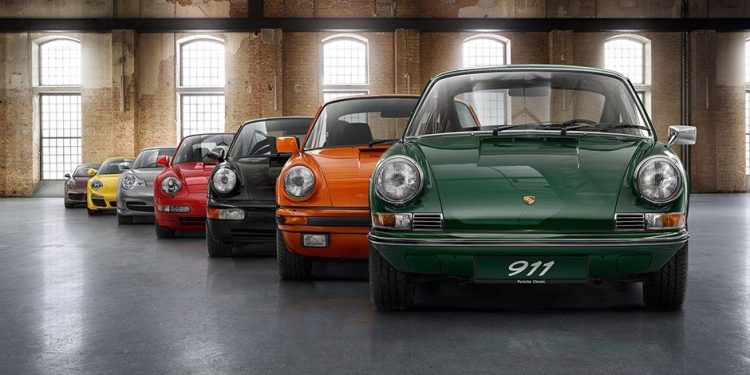Porsche begins working on its new synthetic fuel factory
Words: Matthew Hansen
No car manufacturer has done more work around the development of synthetic fuels than Porsche, and now the iconic marque has confirmed that work is underway on its new Chilean synthetic fuel plant. Fuel production is set to start in mid-2022.
Known as the Haru Oni Plant, the facility represents a collaboration between Porsche, Siemens, AME, and Enel. It’s expected to produce 130,000 litres of ‘eFuels’ in 2022, 55 million litres by 2024, and 550 million litres by 2026.
How is the fuel produced? Well, Porsche says it will be able to make oxygen and green hydrogen by using electrolysers to split water and by using wind power (Chile having been chosen because of its windy climate). CO2 filtered from the air and combined with the green hydrogen results in synthetic methanol, and this gets converted into eFuel.

One of the earliest applications of this new fuel will be as the official fuel of Porsche’s own single-make Supercup race series. But, over time it’s said that about 70 per cent of all Porsches ever built will be able to use these fuels instead of petrol, with no changes to the engine necessary.
“Porsche was founded with pioneering spirit. That’s what drives us, we thrive on innovation. We also see ourselves as pioneers when it comes to renewable fuels, and we want to drive development forward,” says Porsche AG executive Michael Steiner.
“This fits in with our clear overall sustainability strategy. It means that Porsche as a whole can be net CO2 neutral as early as 2030. Fuels produced with renewable energy can make a contribution to this.
“Our icon, the 911, is particularly suited to the use of eFuels. But so are our much-loved historic vehicles, because around 70 per cent of all Porsche sports cars ever built are still on the road today.”
The biggest barrier for the fuel is likely to be price. Pricing for its current synthetic fuel is over US$10 per litre, with Porsche noting in February that it aims to bring the projected price down to below US$2 per litre in order to make it somewhat competitive compared to diesel or petrol.
Porsche was recently in the news over its position to rally against the Italian Government. Earlier this month, the latter announced it would lobby for the European Union to gift exemptions to low-volume supercar companies (like Ferrari and Lamborghini) over its upcoming plans to ban the sale of new internal combustion engine vehicles in 2035.
Speaking to Bloomberg, Porsche CEO Oliver Blume explained that electric cars are an unbeatable combo of performance and emissions reduction, adding that all car manufacturers, including Ferrari and Lamborghini, need to contribute.
“Electric in the next decade will be unbeatable,” he said. “De-carbonization is a global question and everybody has to contribute.”





